Why do cats hate dogs? Interestingly, there is no specific answer. But if you observe them closely, you see some interesting facts you can identify. For instance, there is a significant difference between a cat’s upbringing and how a dog breeds.
This could be one of the primary reasons for the significant behavioural difference between them. But it won’t be wise to be judgemental based on such facts. Instead, we want to dig deeper to understand why cats hate dogs.
But another interesting question could be asked that might spark your curiosity. Do cats really hate dogs!?
Do Cats Really Hate Dogs?
When you see a snake around you, you suddenly get scared. The interesting fact is – the snake gets scared too, whenever it sees a stranger.
If you step on it accidentally or intentionally, try to touch its body; naturally, it will try to bite you. So, will it bite only because it hates you? Not really! Instead, this is a self-defensive approach that almost every animal on earth carries.
A similar thing happens when you welcome a new cat into your home. Naturally, cats are small creatures compared to dogs. And dogs are instinctive to chase smaller animals. From curiosity or that instinct, she gets scared when your dog gets near your cat. And then, she starts showing aggressive expressions to ensure her protection.
You might consider such expressions as hatred, but it’s not. But yes, if it continues for the long run, it will get converted into hatred!
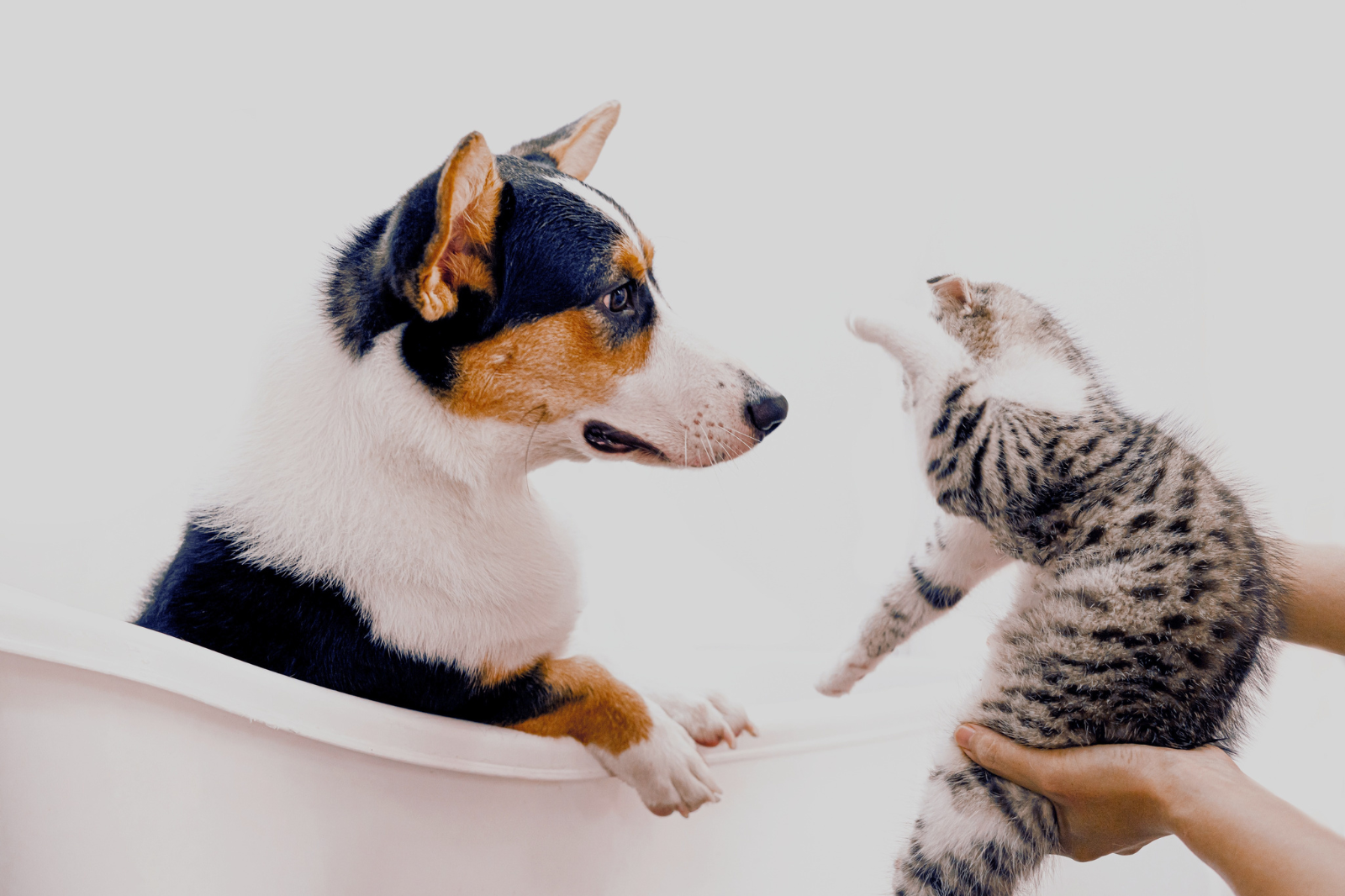
7 Reasons Why Your Cat Hates Dogs
Depending on the surroundings that your cat gets, there might be different reasons that passively influence your cat to hate other pets. From the extensive list, we want to mention 7 common reasons for your cat to hate dogs.
1. Loud Barking Sound
Cats always love to stay in their territory. Naturally, they love to live in cozy places where they can enjoy ultimate comfort. As cats have impressive eyesight and hearing sensitivity, sudden noise quickly catches their attention. Hence, naturally, it makes them turn their heads to the noise source.
If your pet dog lives in the same home where your cat stays and barks often, it’s very natural for your cat to show aggression toward your dog. And that’s how a toxic relationship starts between two different species.
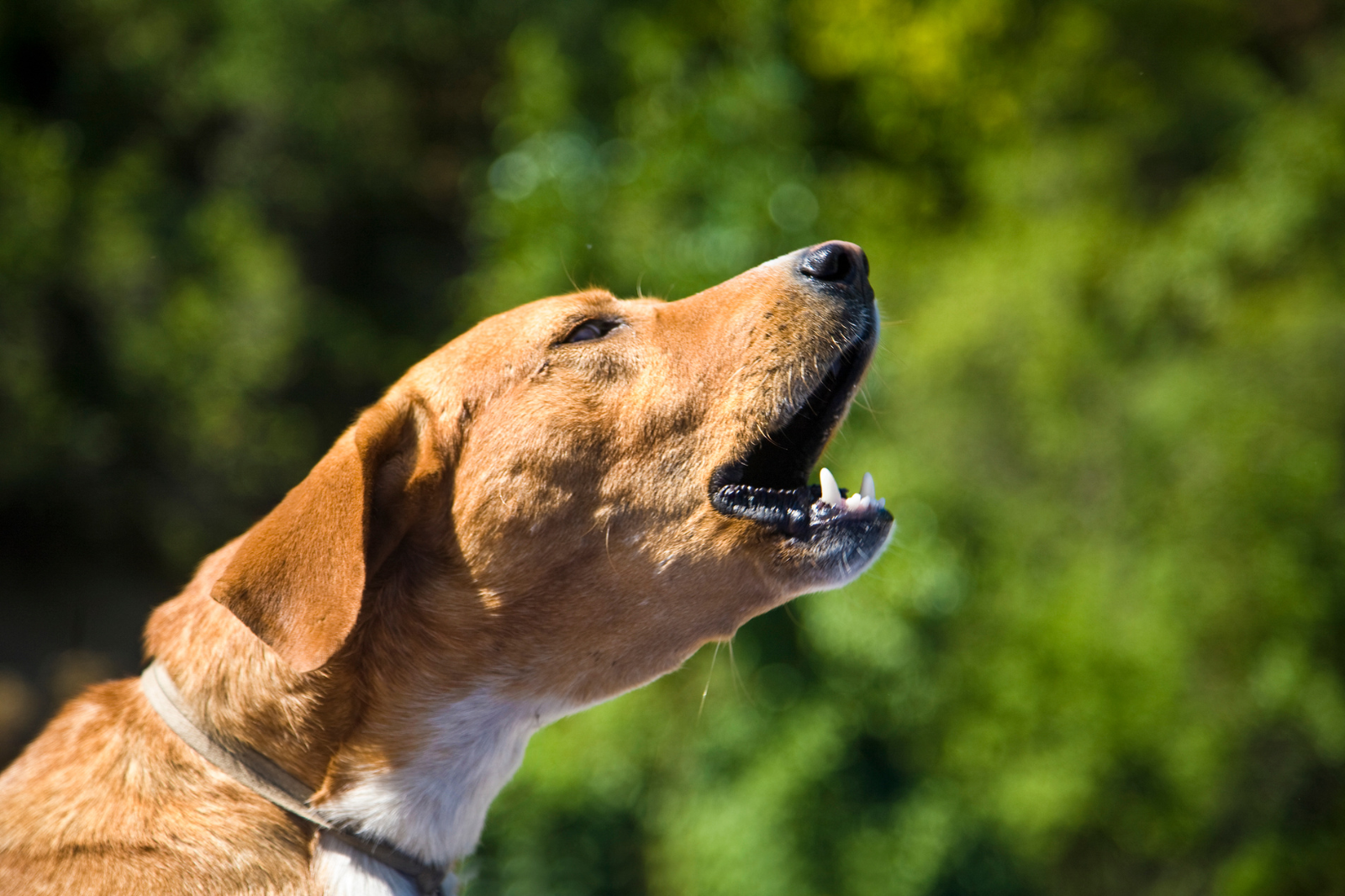
2. Hormonal Aggression
In some cases, cats get some severe physical issues, such as liver disease, neurological disease, arthritis, etc., that cause hormonal imbalances inside the body. This imbalance leads them to show abnormal behaviors like excessive self-grooming, eating nonfood items, sleeping for a long time, sudden aggression, etc.
In such situations, it’s very obvious for your cat to show aggression toward everyone, including your dog. In this case, getting your cat to the veterinarian can be the only appropriate approach to get everything normal.
3. Fear of Big Sized Animals
Cats have a strange tendency to flee out of fear. On the other hand, dogs are instinctive to chase smaller animals that flee. Hence, even though dogs chase cats to play or out of curiosity, cats get it as an attacking approach.
For such reasons, your cat eventually starts to express aggressive expressions out of fear that makes your dog step back. And at last, there remains no chance of getting a good relationship between them.
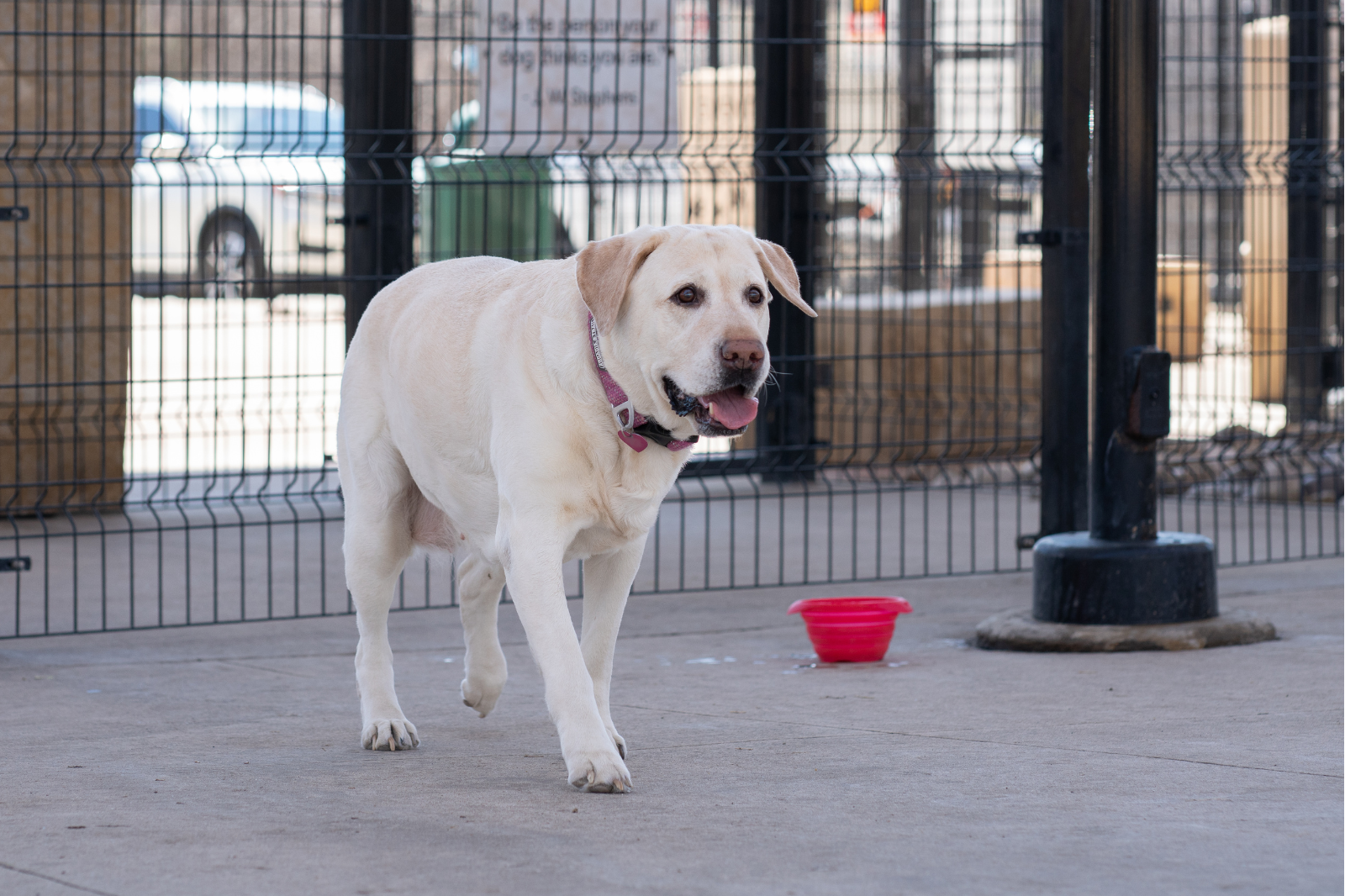
4. Training Struggle
Even though puppies and kittens take an almost similar time to get socialized, kittens take longer to be trained than dogs. A dog has the instinct to consider someone as his leader and follow his command. In short, training a dog is basically the process of teaching and reinforcing the commands. And for the natural advantage of fast learning capability, dogs can easily become friends.
But for cats, the case is almost the opposite. Unlike dogs, they can’t get easily trained. You need extreme patience to train and get them on the friendly track. Due to this challenge, it takes time to make your cat not hate your dog and accept him usually.
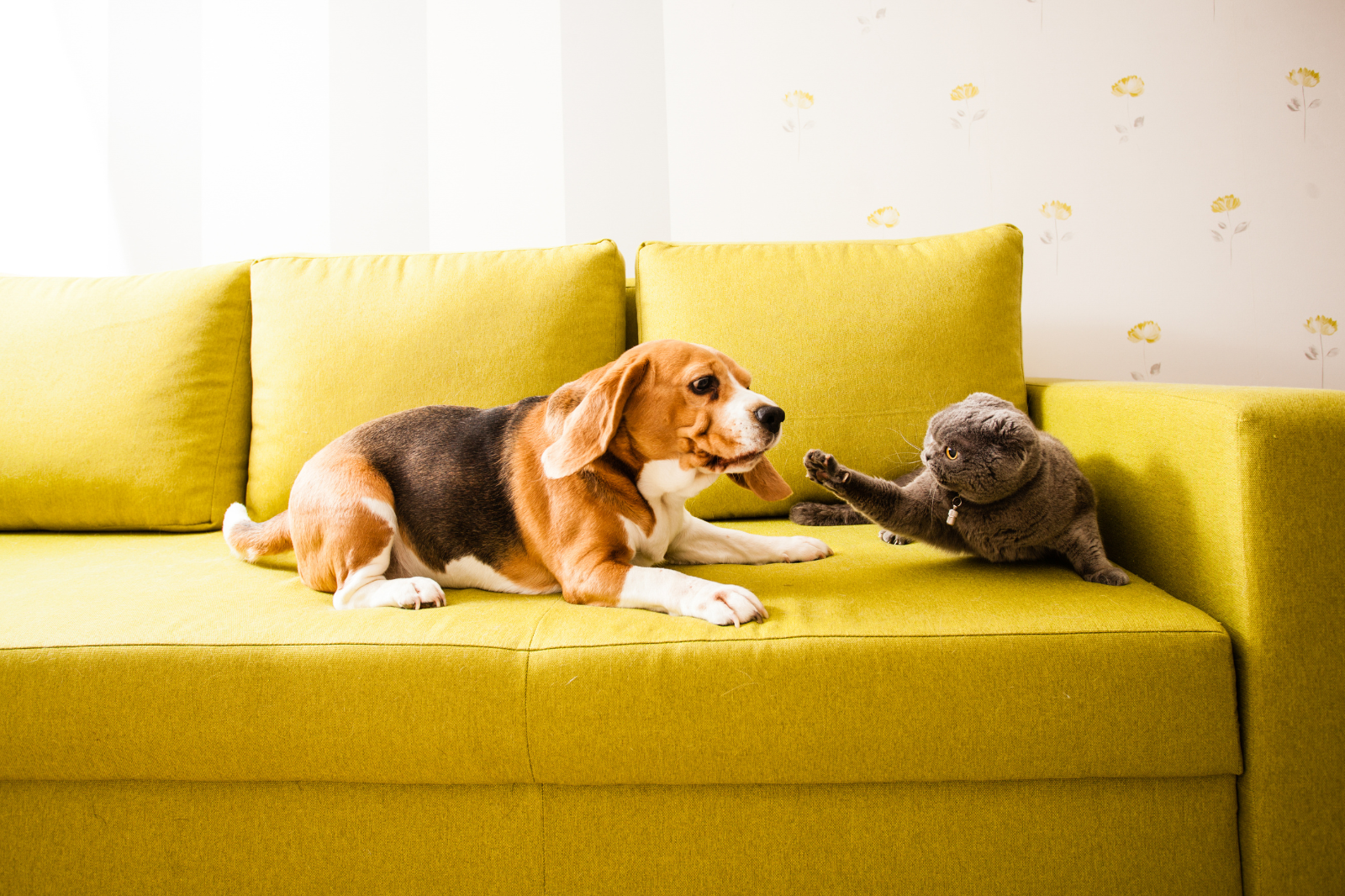
5. The difference in Communicating Approach
Felines and canines communicate with each other through different languages as they are two different creatures—especially their body language. For instance, when a dog wags his tail, it means they’re happy and in a playful mode. Through this approach, he tries to express a welcoming vibe to his master.
But interestingly, a cat might wag her tail when she is annoyed and unhappy (for any reason). Hence, when she sees a dog wagging his tail, it gives a different message to the cat! Naturally, she starts to think that the dog is in attacking mode. And then, she starts to show aggressive expressions to the dog.
6. Protective Behaviour
Dogs are naturally playful animals and always love to smell everything out of curiosity. They have the instinct to chase small creatures that flee. On the other hand, cats behave almost the opposite. In general, they are fearful and tend to flee away whenever they see something strange. This protective nature has made them quite introverted and isolated from other creatures.
Hence, when your dog wants to play with your cat, from the protective instinct, your cat tries to make your dog leave the place by showing aggressive expressions.
7. Fear of New Family Members
Felines and canines both have a natural instinct to intimidate each other by growling, hissing, or barking. When you welcome your new kitten into your home, your dog accepts it as an unusual event since she is a stranger to her.
Hence, they both are strangers to each other. And from their natural instinct, they try to intimidate each other by showing aggressive expressions. This also happens when a new family member joins. And that’s how a toxic relationship starts between two species.
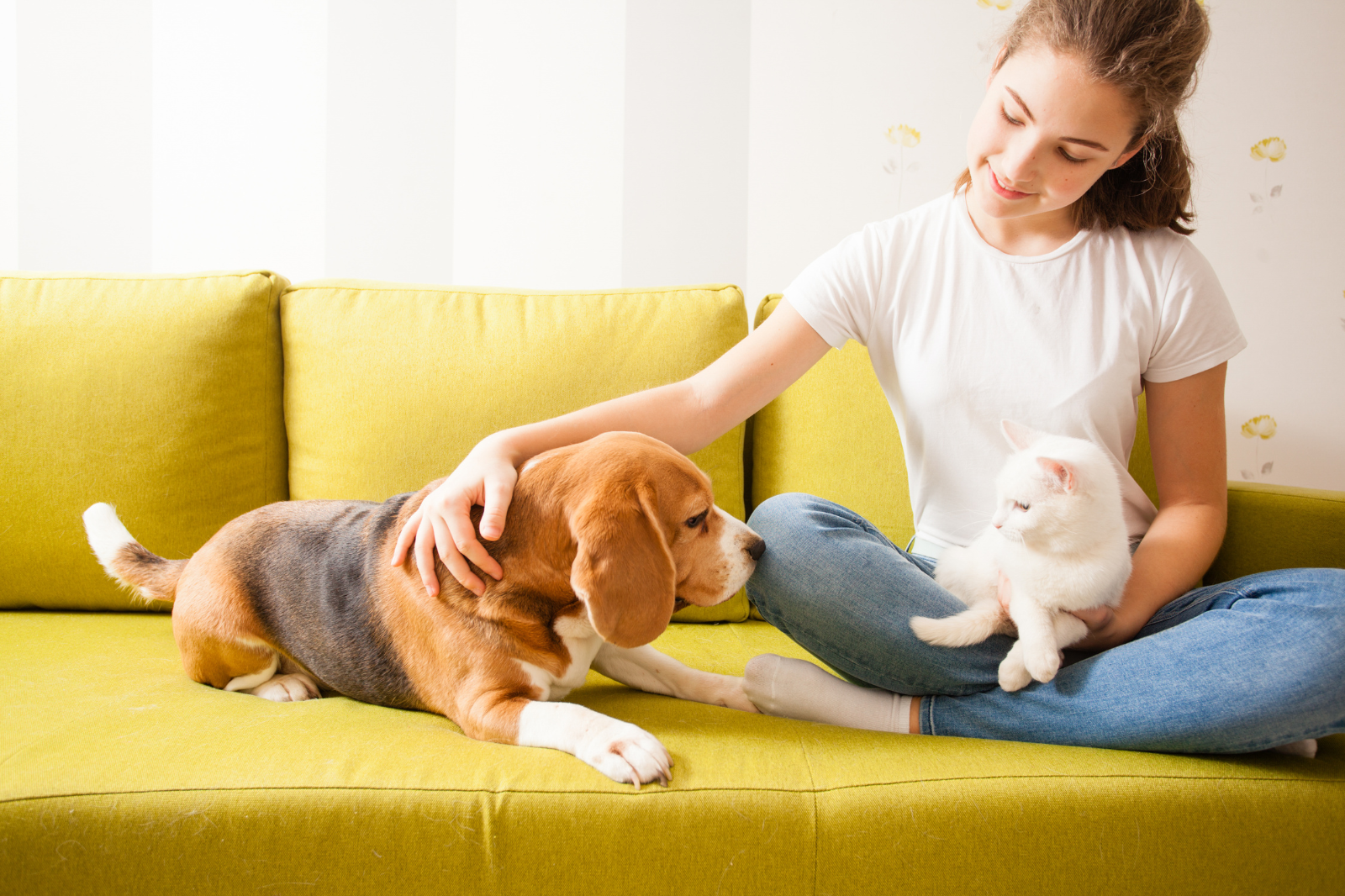
Here Is How To Make Your Cat Not Hate Your Dog!
Making both your cat and dog friends takes time and effort. It will help if you abide by some effective and streamlined procedures that require patience.
But to help your cat and dog get along, you can try the following steps:
- Gradual Introduction: Slowly introduce the two animals to each other by keeping them in separate rooms and allowing them to sniff each other through closed doors.
- Supervised Interactions: Gradually increase the amount of supervised time the two animals spend together, but always make sure that the cat has a safe place to retreat to if needed.
- Positive Reinforcement: Reward both animals for calm and friendly behaviour towards each other with treats, praise, or attention.
- Provide Individual Resources: Ensure each animal has its own food, water, and playing items to avoid competition and conflict.
- Avoid Forcing Interactions: Don’t force your cat and dog to interact, especially if one of them shows signs of discomfort or aggression.
- Seek Professional Help: If the behaviour persists, consider seeking help from a veterinarian or a professional animal behaviourist.
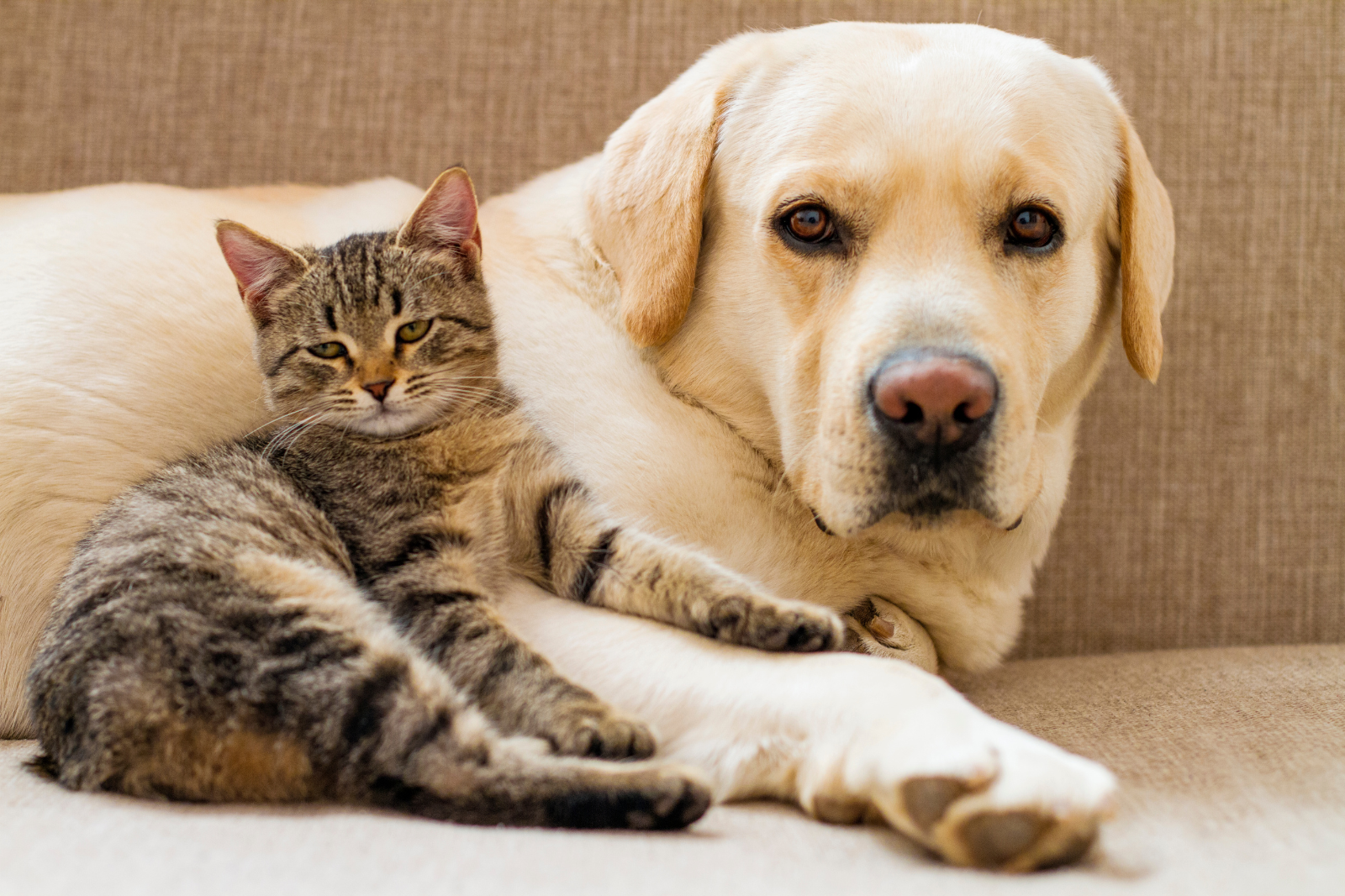
Frequently Asked Questions (FAQ)
Even though we tried to cover the main reasons why cats hate dogs, we had to leave out some other significant facts to keep the discussion concise. Hence, we want to answer some frequently asked questions that might arise in your mind.
Are cats naturally afraid of dogs?
- Cats and dogs have different instincts and behaviours, and their relationship depends on individual experiences and socialization. Some cats may be afraid of dogs, while others may not. Some dogs may view cats as prey, while others may be friendly.
Why do cats run away from dogs?
- Cats may run away from dogs due to instinctual fear as a defence mechanism against potential predators. Socialization and past experiences may also play a role.
How can I train my dog to be gentle with cats?
- To train a dog to be gentle with cats, slowly introduce them under close supervision, reward calm behaviour, and interrupt and redirect aggressive behaviour. Consistency and patience are key!
Are there any breeds of dogs that are better with cats?
- Some dog breeds are known for being more friendly and gentle with other animals, including cats. Breeds such as the Basset Hound, Beagle, Boxer, Bulldog, Cavalier King Charles Spaniel, and Golden Retriever are often considered to be good with cats.
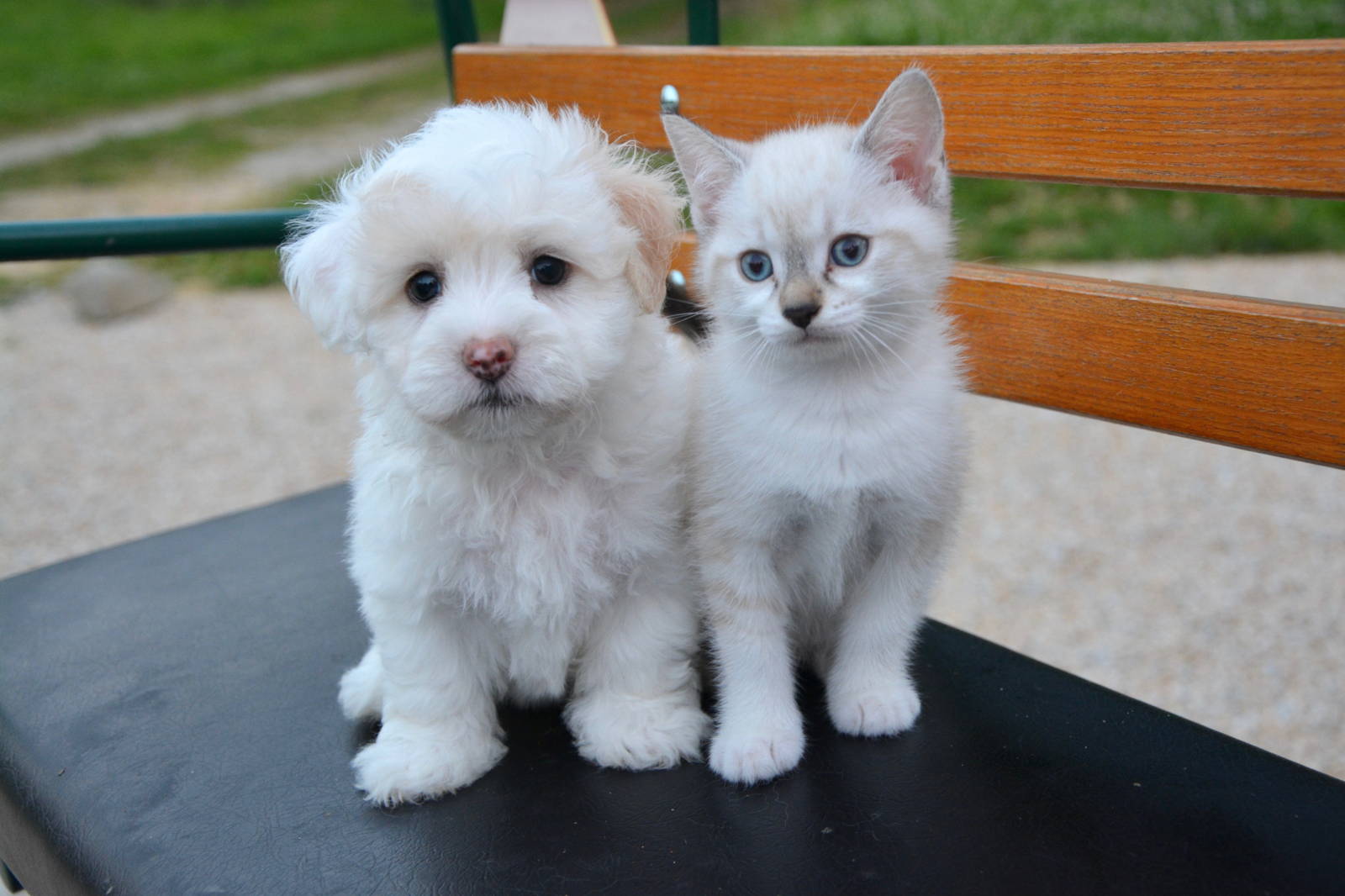
Wrapping Up
In conclusion, while cats and dogs may seem like natural enemies, the truth is they’re just misunderstood. Cats may be afraid of dogs because of their big and goofy personalities, and dogs may chase cats because they think they’re playing a game of tag. But, with patience and understanding, cats and dogs can learn to coexist peacefully and become best friends.
So, let’s put aside the age-old grudge and see these two amazing animals for the unique and lovable creatures they indeed are. Who knows, maybe one day we’ll see cats and dogs snuggled up together on the couch, proving that love conquers all.

